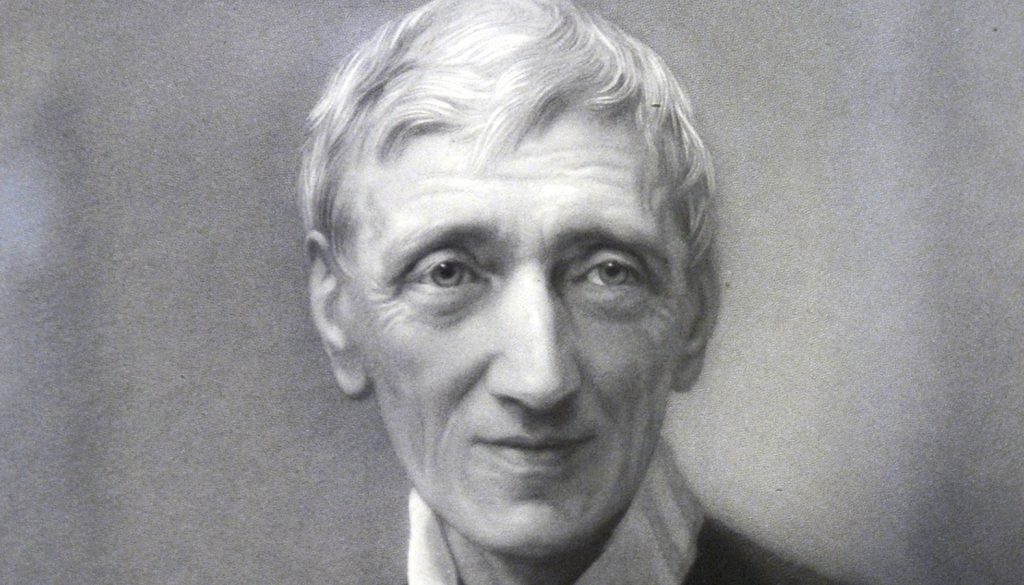In Rome this Sunday, Oct. 13, the great Cardinal John Henry Newman will be raised up to the altars and made a saint.
The world he lived in, the age of Nietzsche and Marx, Freud and Darwin, is the world we inherited — an age of scientism, secularism and relativism; a world where millions live as if God does not exist, and many more are no longer certain that it is even possible for us to know God.
Our new saint has much to teach the Church about how we respond to the crisis of faith in our times, the importance of both faith and reason in our evangelization, and the essential role of religion in our public life.
Newman was a Scripture scholar, historian, and disciple of the Church Fathers. He wrote widely — novels, poems, essays, prayers, and homilies — and he had a deep and rich spiritual life.
For me, he has always been the model of a humble and holy priest and confessor. His “rules for writing sermons” should be on the desk of every priest and bishop. And he gave us a beautiful vision of the humanity of the priest in bringing God’s love to his people:
“Had angels been your priests, my brethren, they could not have condoled with you, sympathized with you, have had compassion on you, felt tenderly for you, and made allowances for you, as we can; they could not have been your patterns and guides, and have led you on from your old selves into a new life, as they can who come from the midst of you.”
For many years now, I have drawn from Newman’s ideas on our vocation to holiness and his teaching that every life has a purpose in God’s plan of salvation.
One of my favorite quotes is this:
“God has created me to do him some definite service. He has committed some work to me which he has not committed to another. I have my mission. … Somehow I am necessary for his purposes … I have a part in this great work. … I am a link in a chain, a bond of connection between persons. He has not created me for naught.”
This is a great truth that we need to hear again in our age. We are important to God and each one of us is created with a personal mission to carry out in our lives.
Newman spoke of “doing glory to God in pursuits of the world.” And we do that through our efforts to know God’s will and to fulfill it, in our work and in our relationships with our families and friends.
His motto as a cardinal was “Cor ad cor loquitur” (“Heart speaks to heart”), and he teaches us to evangelize by just being good friends with other people, helping them to know the friendship of Christ. We evangelize by living our faith in everything we do.
“Teach me to show forth Thy praise, Thy truth, Thy will,” our new saint prayed. “Make me preach Thee without preaching — not by words, but by my example and by the catching force, the sympathetic influence, of what I do — by my visible resemblance to Thy saints, and the evident fulness of the love which my heart bears to Thee.”
Newman warned us often of the “religion of the day,” a false and comfortable Christianity that accommodates itself to the rules and expectations of a secular, materialistic society, reducing the gospel to a simple call for us to all be polite, nice people.
“Everything is bright and cheerful. Religion is pleasant and easy; benevolence is the chief virtue; intolerance, bigotry, excess of zeal, are the first sins,” he said of this worldly religion.
Newman knew that the “religion of the day” drains us of our evangelical energies and our desire for conversion. True faith always means a struggle with the darker sides of human nature, a struggle within to conform ourselves to Christ, and a struggle to convert the world, to fill it with the values of the gospel, to bring God’s kingdom, which is our mission.
Pray for me this week and I will pray for you. And this week, let us pray with our new saint:
“While we pray that He would make us holy, really holy, let us also pray Him to give us the beauty of holiness, which consists in tender and eager affection towards our Lord and Savior.”
And with our new saint, let us ask our Blessed Mother to intercede for us, to “guide us on to our Lord Jesus, guide us home.”

